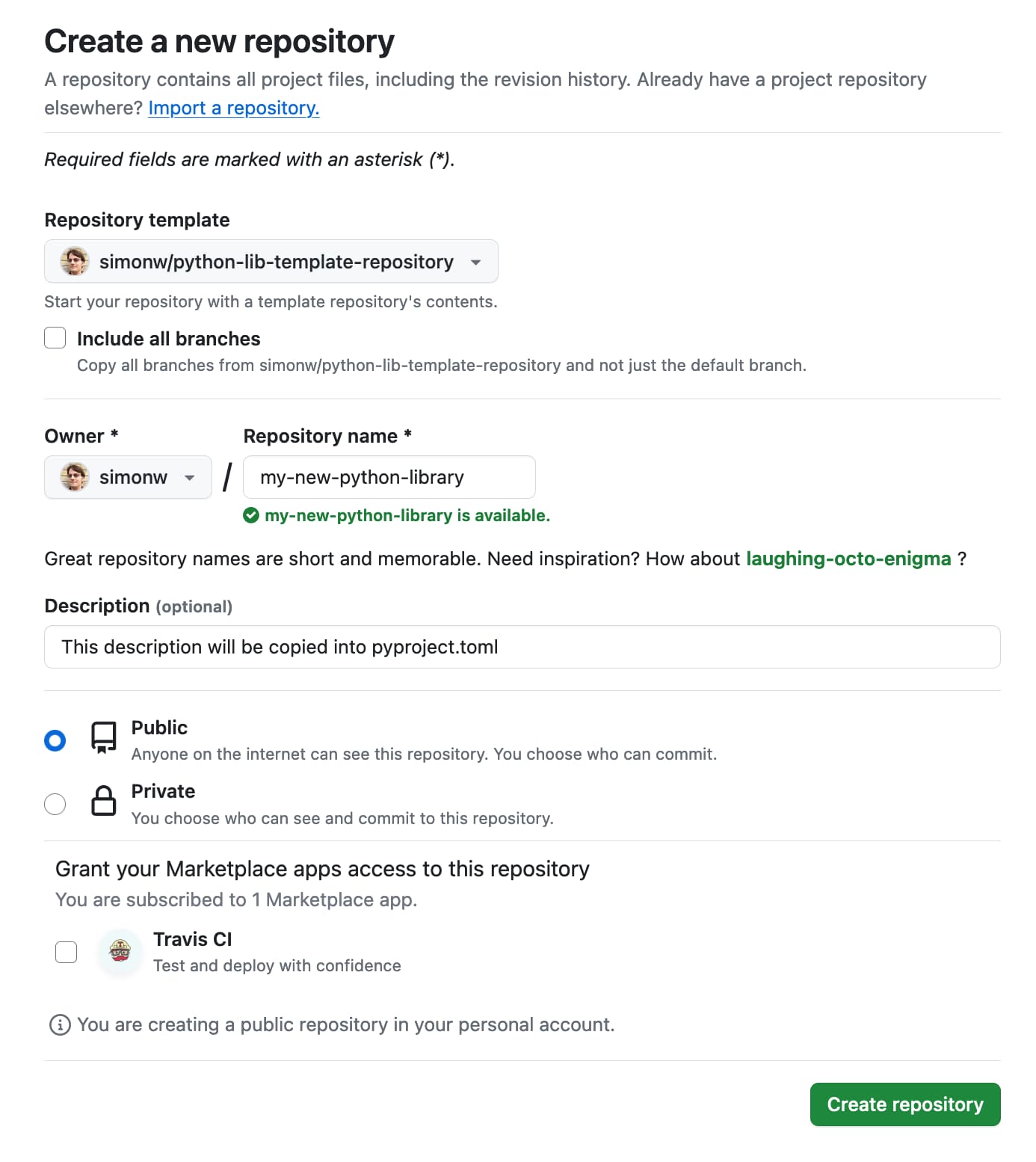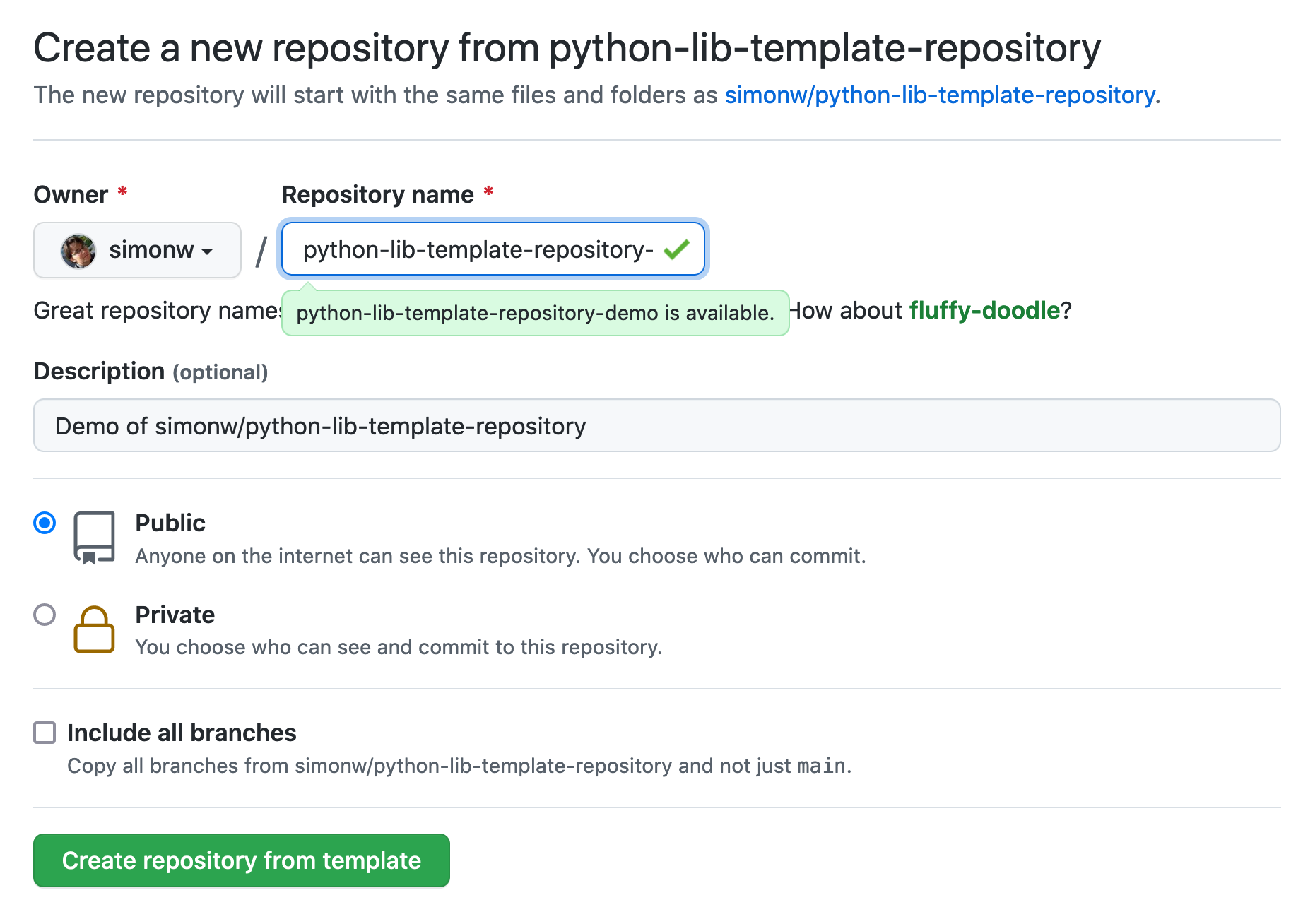10 posts tagged “cookiecutter”
2024
TIL: Using uv to develop Python command-line applications.
I've been increasingly using uv to try out new software (via uvx) and experiment with new ideas, but I hadn't quite figured out the right way to use it for developing my own projects.
It turns out I was missing a few things - in particular the fact that there's no need to use uv pip at all when working with a local development environment, you can get by entirely on uv run (and maybe uv sync --extra test to install test dependencies) with no direct invocations of uv pip at all.
I bounced a few questions off Charlie Marsh and filled in the missing gaps - this TIL shows my new uv-powered process for hacking on Python CLI apps built using Click and my simonw/click-app cookecutter template.
simonw/docs cookiecutter template. Over the last few years I’ve settled on the combination of Sphinx, the Furo theme and the myst-parser extension (enabling Markdown in place of reStructuredText) as my documentation toolkit of choice, maintained in GitHub and hosted using ReadTheDocs.
My LLM and shot-scraper projects are two examples of that stack in action.
Today I wanted to spin up a new documentation site so I finally took the time to construct a cookiecutter template for my preferred configuration. You can use it like this:
pipx install cookiecutter
cookiecutter gh:simonw/docs
Or with uv:
uv tool run cookiecutter gh:simonw/docs
Answer a few questions:
[1/3] project (): shot-scraper
[2/3] author (): Simon Willison
[3/3] docs_directory (docs):
And it creates a docs/ directory ready for you to start editing docs:
cd docs
pip install -r requirements.txt
make livehtml
Upgrading my cookiecutter templates to use python -m pytest.
Every now and then I get caught out by weird test failures when I run pytest and it turns out I'm running the wrong installation of that tool, so my tests fail because that pytest is executing in a different virtual environment from the one needed by the tests.
The fix for this is easy: run python -m pytest instead, which guarantees that you will run pytest in the same environment as your currently active Python.
Yesterday I went through and updated every one of my cookiecutter templates (python-lib, click-app, datasette-plugin, sqlite-utils-plugin, llm-plugin) to use this pattern in their READMEs and generated repositories instead, to help spread that better recipe a little bit further.
Publish Python packages to PyPI with a python-lib cookiecutter template and GitHub Actions
I use cookiecutter to start almost all of my Python projects. It helps me quickly generate a skeleton of a project with my preferred directory structure and configured tools.
[... 686 words]2021
Cookiecutter Data Science (via) Some really solid thinking in this documentation for the DrivenData cookiecutter template. They emphasize designing data science projects for repeatability, such that just the src/ and data/ folders can be used to recreate all of the other analysis from scratch. I like the suggestion to give each project a dedicated S3 bucket for keeping immutable copies of the original raw data that might be too large for GitHub.
Dynamic content for GitHub repository templates using cookiecutter and GitHub Actions
GitHub repository templates were introduced a couple of years ago to provide a mechanism for creating a brand new GitHub repository starting with an initial set of files.
[... 1,413 words]2020
pypi-rename. I wanted to rename a PyPI package (renaming datasette-insert-api to datasette-insert as it’s about to grow some non-API features). PyPI recommend uploading a final release under the old name which points to (and depends on) the new name. I’ve built a cookiecutter template to codify that pattern.
Weeknotes: cookiecutter templates, better plugin documentation, sqlite-generate
I spent this week spreading myself between a bunch of smaller projects, and finally getting familiar with cookiecutter. I wrote about my datasette-plugin cookiecutter template earlier in the week; here’s what else I’ve been working on.
[... 703 words]click-app. While working on sqlite-generate today I built a cookiecutter template for building the skeleton for Click command-line utilities. It’s based on datasette-plugin so it automatically sets up GitHub Actions for running tests and deploying packages to PyPI.
A cookiecutter template for writing Datasette plugins
Datasette’s plugin system is one of the most interesting parts of the entire project. As I explained to Matt Asay in this interview, the great thing about plugins is that Datasette can gain new functionality overnight without me even having to review a pull request. I just need to get more people to write them!
[... 914 words]
